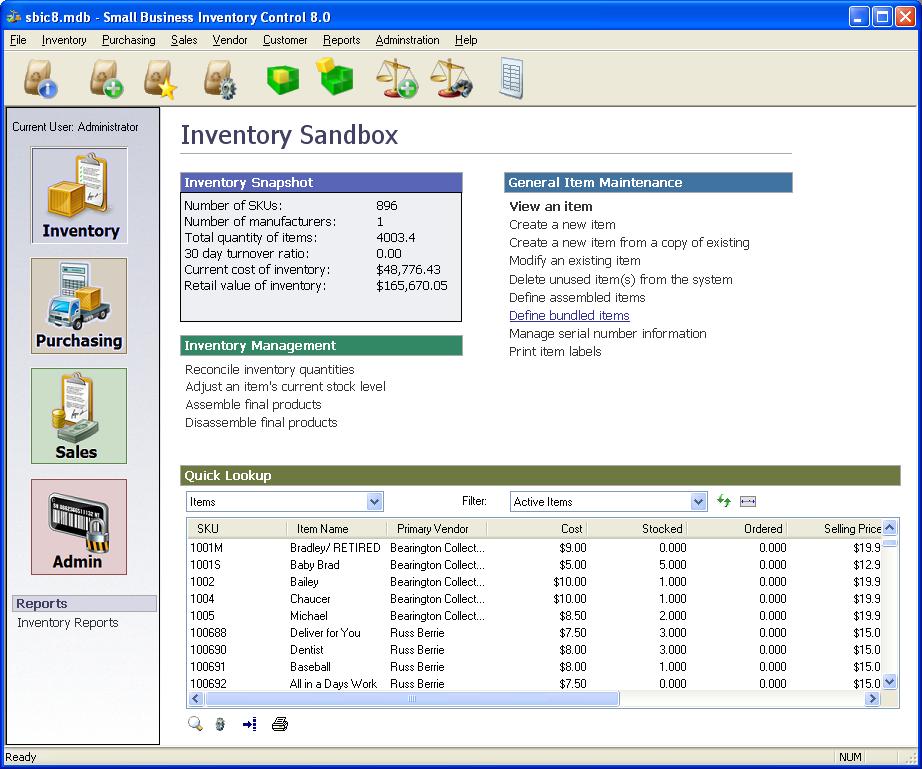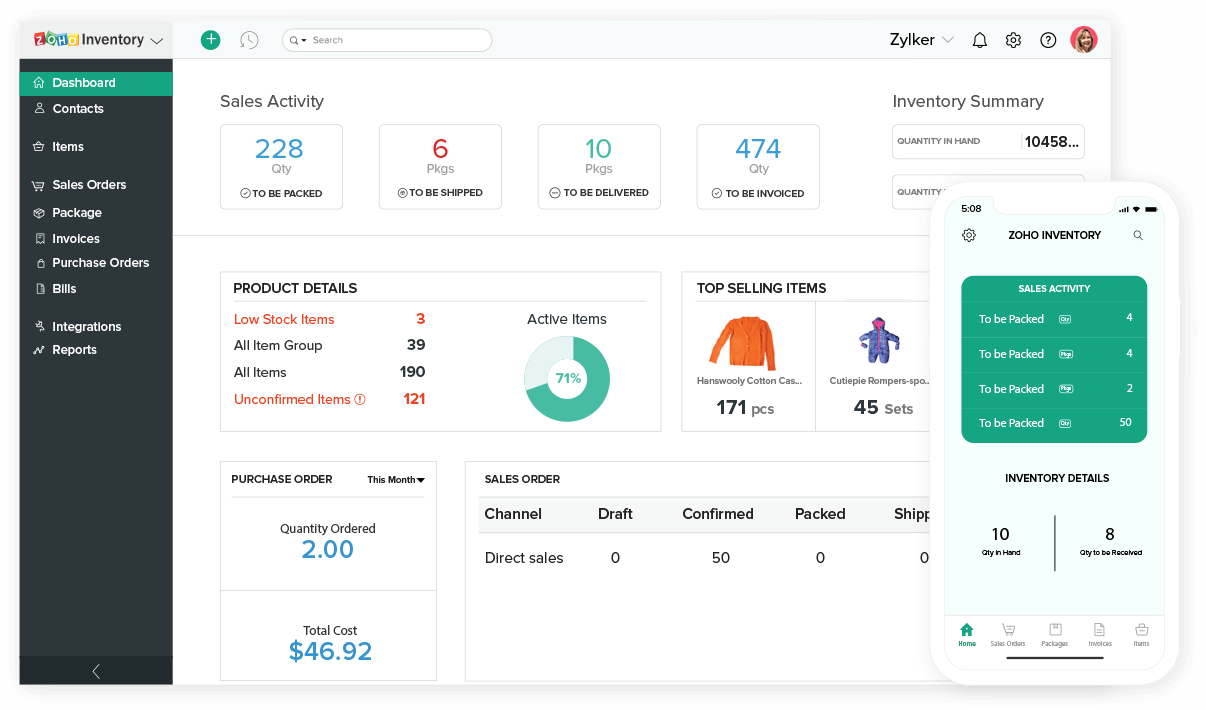Inventory tracking software small business takes center stage as a game-changer for efficient operations and increased profitability. With its myriad benefits, it’s no wonder small businesses are embracing this technology to streamline their inventory management processes.
Inventory tracking software empowers small businesses with real-time visibility into their inventory levels, enabling them to make informed decisions, reduce waste, and enhance customer satisfaction. Its ability to integrate with other business systems further streamlines operations, providing a comprehensive solution for managing inventory effectively.
Inventory Tracking Software for Small Businesses
![]()
Inventory tracking software is a crucial tool for small businesses to effectively manage their inventory levels, optimize stock, and streamline operations. It enables businesses to track inventory items in real-time, providing insights into stock levels, product movement, and sales trends.
Utilizing inventory tracking software offers numerous benefits for small businesses, including:
- Enhanced inventory accuracy, reducing the risk of stockouts and overstocking.
- Improved stock management, allowing businesses to make informed decisions on inventory levels and reordering.
- Increased sales, as businesses can better meet customer demand by having the right products in stock at the right time.
li>Streamlined operations, saving time and effort in inventory management tasks.
There are several inventory tracking software solutions available, each tailored to specific business needs. Some popular options include:
- QuickBooks Commerce: A comprehensive solution for small businesses, offering inventory management, order processing, and accounting.
- Zoho Inventory: A cloud-based inventory management system with features such as multi-warehouse support and barcode scanning.
- Shopify: An e-commerce platform that includes inventory management capabilities, allowing businesses to track inventory across multiple sales channels.
Features to Consider When Choosing Inventory Tracking Software

Inventory tracking software can greatly simplify and streamline your inventory management processes. However, not all software is created equal. When choosing a solution for your small business, it’s essential to consider the specific features that are important to you.
Essential Features
Some of the most important features to look for in inventory tracking software include:
- Real-time tracking:This feature allows you to see your inventory levels in real-time, so you can always know what you have on hand.
- Barcode scanning:Barcode scanning can help you quickly and easily track your inventory, reducing the risk of errors.
- Reporting capabilities:Reporting capabilities can help you track your inventory trends and identify areas where you can improve your efficiency.
Software Comparison Table
Here is a comparison table of some of the most popular inventory tracking software options for small businesses:
| Feature | Software A | Software B | Software C |
|---|---|---|---|
| Real-time tracking | Yes | Yes | No |
| Barcode scanning | Yes | Yes | No |
| Reporting capabilities | Yes | Yes | Yes |
Implementation and Integration: Inventory Tracking Software Small Business

Implementing inventory tracking software involves several key steps. Firstly, determine the specific requirements of your business and identify the software that best meets those needs. Once selected, gather necessary data, including product information, inventory levels, and supplier details. Configure the software according to your business rules and processes, ensuring accuracy and efficiency.
Train staff on the software’s functionality and establish clear procedures for its use.Integrating inventory tracking software with other business systems, such as accounting, sales, and purchasing, is crucial for streamlining operations. This integration allows for real-time data sharing, eliminating manual data entry and reducing errors.
For instance, when an order is placed in the sales system, the inventory tracking software automatically updates stock levels and triggers purchase orders when necessary.Best practices for ensuring a smooth implementation and integration process include involving key stakeholders, such as management, staff, and IT personnel, to gain buy-in and support.
Establish a clear timeline and assign responsibilities to ensure timely execution. Conduct thorough testing to identify and resolve any potential issues before going live. Monitor the implementation closely, making adjustments as needed, and provide ongoing support to ensure successful adoption.
Benefits and Impact on Small Businesses

Inventory tracking software offers significant benefits to small businesses, empowering them to streamline operations, reduce costs, and boost sales.By automating inventory management tasks, such as tracking stock levels, reordering products, and managing stock locations, small businesses can improve efficiency and free up valuable time for other essential tasks.
This increased efficiency leads to cost savings in terms of reduced labor costs, minimized errors, and improved decision-making based on accurate inventory data.Moreover, inventory tracking software helps businesses optimize their inventory levels, ensuring they have the right products in stock at the right time to meet customer demand.
This reduces the risk of overstocking, which can tie up cash flow, and understocking, which can lead to lost sales and customer dissatisfaction.
Real-Life Examples
Numerous small businesses have experienced tangible benefits after implementing inventory tracking software. For instance, a small retail store saw a 15% increase in sales after using software to track inventory levels and identify popular products that needed to be restocked more frequently.
Another small business, an online retailer, reduced its inventory carrying costs by 20% by using software to optimize stock levels and identify slow-moving products that could be discounted or phased out.These examples demonstrate the positive impact that inventory tracking software can have on small businesses, helping them streamline operations, reduce costs, and increase sales.
By leveraging technology to manage inventory effectively, small businesses can gain a competitive edge and position themselves for growth.
Trends and Future of Inventory Tracking Software
Inventory tracking software is constantly evolving to meet the changing needs of small businesses. Emerging trends include:
Artificial Intelligence (AI)
AI can automate inventory management tasks, such as forecasting demand and optimizing stock levels. This can free up small business owners to focus on other aspects of their business.
Internet of Things (IoT)
IoT devices can track inventory in real-time, providing businesses with up-to-date information on stock levels. This can help to prevent stockouts and overstocking.
Cloud-based software
Cloud-based inventory tracking software is becoming increasingly popular, as it is easy to use and can be accessed from anywhere. This can be a great option for small businesses that do not have the resources to invest in on-premise software.
The potential impact of technologies like AI and IoT on inventory management
AI and IoT have the potential to revolutionize inventory management for small businesses. AI can help businesses to:
Forecast demand more accurately
AI can analyze historical data to identify patterns and trends in demand. This information can then be used to forecast future demand and optimize stock levels.
Optimize stock levels
AI can help businesses to determine the optimal stock levels for each item, based on factors such as demand, lead time, and safety stock. This can help to prevent stockouts and overstocking.
Automate inventory management tasks
AI can automate a variety of inventory management tasks, such as order processing, invoicing, and shipping. This can free up small business owners to focus on other aspects of their business.IoT devices can help businesses to:
Track inventory in real-time
IoT devices can be used to track inventory in real-time, providing businesses with up-to-date information on stock levels. This can help to prevent stockouts and overstocking.
Monitor inventory conditions
IoT devices can be used to monitor inventory conditions, such as temperature and humidity. This can help to ensure that inventory is stored in optimal conditions.
Automate inventory management tasks
IoT devices can be used to automate a variety of inventory management tasks, such as inventory counting and replenishment. This can free up small business owners to focus on other aspects of their business.
Speculation on the future of inventory tracking software and its role in small businesses, Inventory tracking software small business
The future of inventory tracking software is bright. As AI and IoT continue to develop, inventory tracking software will become even more powerful and easier to use. This will make it even more essential for small businesses to use inventory tracking software to manage their inventory effectively.In the future, inventory tracking software is likely to become more integrated with other business systems, such as accounting and customer relationship management (CRM) systems.
This will allow businesses to have a complete view of their inventory and how it is impacting their business.Inventory tracking software is already playing a vital role in small businesses, and its importance is only going to grow in the future.
By using inventory tracking software, small businesses can save time and money, improve customer service, and make better decisions about their inventory.
Closing Summary

In conclusion, inventory tracking software has emerged as an indispensable tool for small businesses seeking to optimize their inventory management practices. Its ability to improve efficiency, reduce costs, and increase sales makes it a worthwhile investment for any small business looking to gain a competitive edge in today’s dynamic market.
Helpful Answers
What are the key benefits of using inventory tracking software for small businesses?
Inventory tracking software offers numerous benefits, including improved inventory accuracy, reduced waste, enhanced customer satisfaction, streamlined operations, and increased profitability.
How does inventory tracking software integrate with other business systems?
Inventory tracking software can integrate with various business systems, such as accounting software, e-commerce platforms, and CRM systems, providing a comprehensive view of inventory data across different channels.
What are some best practices for implementing inventory tracking software?
Best practices for implementing inventory tracking software include defining clear goals, choosing the right software for your business needs, training staff thoroughly, and ensuring regular maintenance and updates.